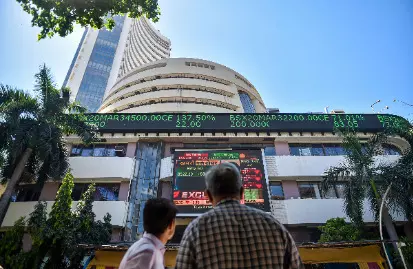Regulated pre-IPO trading platform to bring transparency, liquidity for investors: Experts

New Delhi: Market regulator Sebi's plan to introduce a regulated pre-IPO trading platform could reshape how investors buy and sell unlisted shares, bringing transparency to a space long dominated by the opaque grey market and reducing risks for retail investors, market experts said.
Moreover, for employees, especially those holding ESOPs (employee stock options), the framework could be a game-changer.
Rajesh Singla, founder and CEO of Planify, which deals in buying and selling of unlisted shares, explained that a large portion of ESOPs remains unutilised today as employees lack access to liquidity options before an initial public offering (IPO). With Sebi's proposed system, they would finally have an avenue to monetise their holdings in a regulated environment.
On Friday, Sebi chairman Tuhin Kanta Pandey hinted at introducing a regulated platform for pre-IPO share trading, potentially replacing existing grey market practices.
The move, if implemented, may also allow investors to trade shares in a transparent environment during the three-day gap between allotment and listing. At present, this window is dominated by the unregulated grey market, which could be replaced by a formal mechanism.
Currently, the grey market functions as an informal over-the-counter network, where brokers and investors negotiate deals based on the expected listing price. The Grey Market Premium (GMP) often emerges as the key sentiment indicator.
While GMP doesn't guarantee outcomes, it frequently shapes retail investor decisions on whether to apply for an IPO, said Trivesh, COO of Tradejini.
Experts believe that the regulated platform would bring structure and supervision to a segment that has so far operated outside formal oversight.
"A regulated platform will create defined standards and boundaries, reducing market anomalies and enabling transactions to happen transparently under Sebi's supervision," Planify's Singla said.
Feroze Azeez, Joint CEO of Anand Rathi Wealth, said the proposal could significantly reduce grey market activity by shifting pre-IPO trades into a transparent ecosystem.
Beyond transparency, he noted that proper disclosures and structured settlement mechanisms will help investors evaluate companies more accurately and transact with greater confidence. This, in turn, could increase retail participation in the unlisted space, which has been limited due to risks of fraud and price manipulation.
The growing scale of India's IPO market makes the case for such a platform even stronger. In 2024 alone, 337 companies went public -- 91 on the mainboard and 241 on SME -- raising nearly Rs 1.67 lakh crore, with average listing gains of 29 per cent.
On the unlisted side, estimates suggest that more than 1,300 profitable companies collectively hold around Rs 150 lakh crore of value waiting to be unlocked.
"A formal mechanism could tap this liquidity and allow wider participation beyond select circles," Trivesh said.
On the other hand, experts said existing grey market offers no such protection. Retail participants remain exposed to fraud, default, and unfair practices, with transactions often driven by short-term speculation rather than informed, long-term investment.
The system also encourages reliance on speculative indicators, such as Kostak and Sauda rates -- terms that reflect premiums on IPO applications irrespective of allotment or contingent on allotment, respectively, Azeez said.
While GMP is widely followed as a gauge of demand, its reliability is questionable. Operators can manipulate premiums to sway investor behaviour, creating both opportunities and risks for retail investors.
A recent study by Anand Rathi Wealth in July 2025 underlines this point -- of 19 IPOs on the mainboard, more than 60 per cent were listed below their GMPs, 40 per cent below Sauda rates, and 26 per cent at or below the issue price. This shows that GMP often mirrors speculative sentiment rather than true fundamentals.
The mismatch between pre-listing hype and actual performance has been evident in several high-profile IPOs, including Paytm, Zomato, Nykaa, Policybazaar, and Brigade.
In many of these cases, strong grey market premiums failed to translate into sustained listing gains, with stocks witnessing sharp corrections soon after debut, Anand Rathi's Azeez said.



